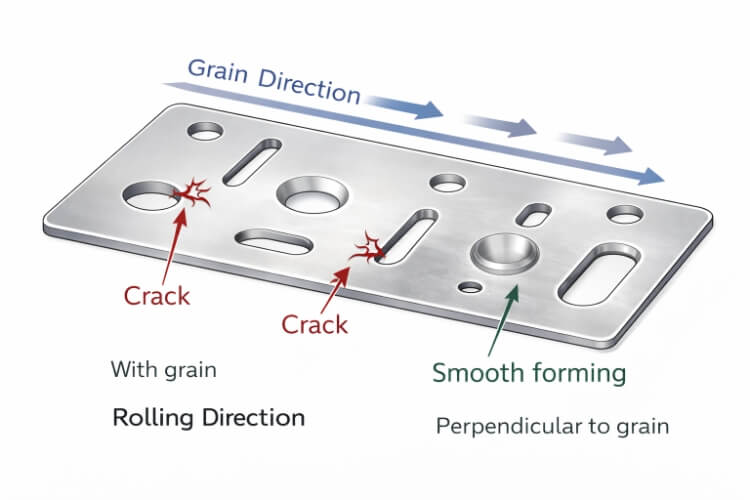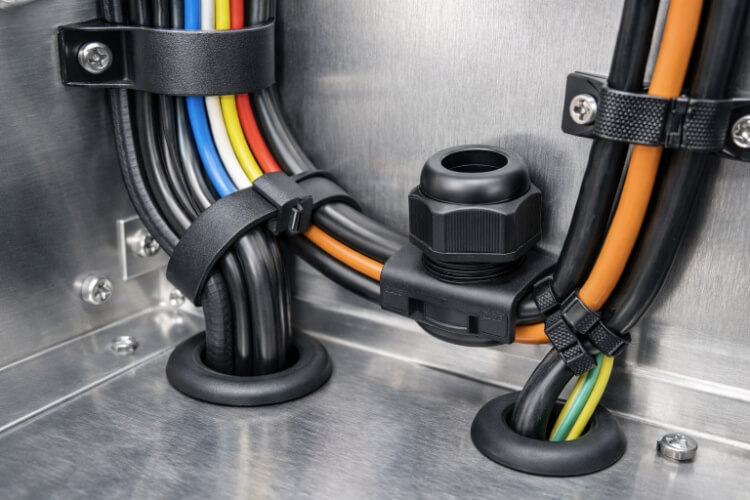Когда люди думают о металлах, на ум часто приходит слово "ржавчина". Ржавчина может означать потери, повреждения и дорогостоящий ремонт. Мы постоянно встречаем вопросы о коррозионной стойкости никеля. Это заставляет многих задаваться вопросом: Ржавеет ли никель? Является ли никель правильным выбором, если вам нужен материал, способный противостоять суровым условиям?
Никель повсеместно используется в современном производстве. Люди доверяют его устойчивости к повреждениям, но иногда он может подвергаться коррозии. Если вы хотите узнать, как никель держится и когда он может подвести, читайте дальше.
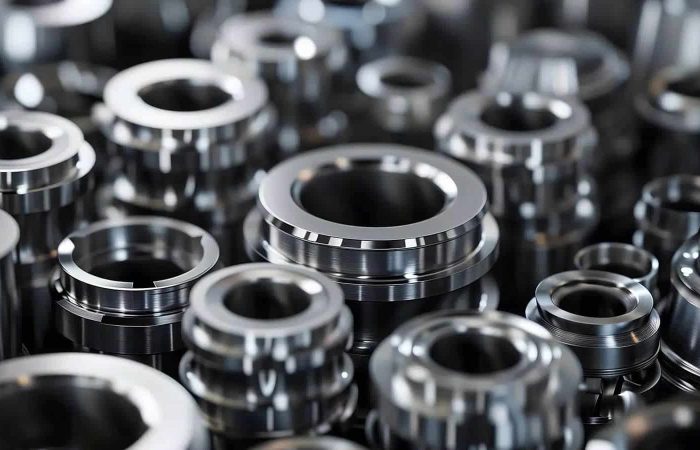
Что такое никель?
Никель - металл, встречающийся в земной коре. Он имеет серебристо-белый цвет с легким золотистым оттенком. Он прочен, долговечен и имеет гладкую, блестящую поверхность. Никель входит в группу переходных металлов.
Никель устойчив к износу, нагреву и коррозии. Он также обладает магнитными свойствами. Эти свойства делают его полезным во многих отраслях промышленности. Одна из его ведущих ролей - в производстве нержавеющей стали. Никель делает сталь прочнее и помогает ей бороться с ржавчиной.
Никель часто используется в качестве покрытия для других металлов. Этот процесс называется никелированиеНикель защищает металл, находящийся под ним, и придает ему яркость и чистоту. Никель можно найти в электронике, батарейках, монетах, кухонных инструментах и медицинском оборудовании. Он также используется в авиа- и морских деталях, поскольку сохраняет прочность в суровых условиях.
Ржавеет ли никель?
Никель не ржавеет в традиционном смысле этого слова, но он может ржаветь. По определению, ржавчина - это красновато-коричневый оксид железа, который образуется при реакции железа с кислородом и водой. Поскольку никель не содержит железа, он не образует ржавчины такого типа.
Вместо того чтобы ржаветь, никель образует на своей поверхности устойчивый защитный оксидный слой. Эта тонкая пленка защищает металл от дальнейшего воздействия воздуха и влаги. В результате никель остается блестящим и устойчивым к коррозии в большинстве обычных условий.
Однако это не означает, что никель вообще не поддается коррозии. В жестких условиях - например, в сильных кислотах, соленой воде или очень влажном воздухе - никель все же может со временем разрушиться. Но этот тип коррозии не похож на ржавчину и обычно происходит гораздо медленнее.
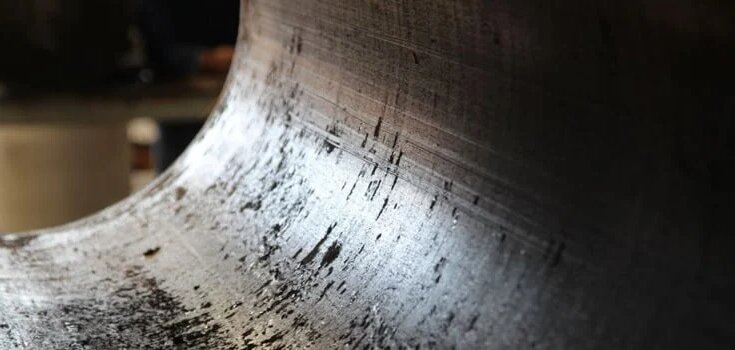
Сравнение никелевой ржавчины и никелевой коррозии
Ржавчина и коррозия - не одно и то же, особенно если речь идет о никеле. Никель не ржавеет в обычном смысле этого слова, но он может корродировать. Вот как различаются эти два процесса, когда речь идет о никеле.
Ржавчина происходит только с металлами, содержащими железо. При этом образуются красновато-коричневые чешуйки, которые ослабляют металл. Поскольку никель не содержит железа, он не ржавеет, как сталь или чугун. На чистых никелевых поверхностях вы не увидите чешуйчатого, порошкообразного налета.
Коррозия, с другой стороны, является более широким термином. Она относится к любой химической реакции, разрушающей металл. Коррозия никеля обычно проявляется в виде потускнения, точечной коррозии или износа поверхности. Она может выглядеть не так драматично, как ржавчина, но все равно влияет на прочность и внешний вид.
Коррозия никеля происходит медленнее и менее заметна, чем ржавчина. Это происходит благодаря образуемому им защитному оксидному слою. Однако если этот слой поврежден или металл подвергается воздействию агрессивных химических веществ, коррозия все равно может возникнуть. Короче говоря, никель противостоит ржавчине, но может корродировать при соответствующих условиях.
Факторы, делающие никель устойчивым к ржавчине
Способность никеля противостоять ржавчине и коррозии обусловлена несколькими природными и инженерными особенностями. Вот что делает его таким прочным:
Формирование пассивного оксидного слоя
При контакте с воздухом никель быстро образует тонкую оксидную пленку. Этот слой действует как защитный экран. Он не позволяет кислороду и влаге проникать в металл, находящийся под ним. Этот пассивный слой стабилен, тонок и самовосстанавливается. Если его поцарапать, он восстанавливается сам, сохраняя металл в целости и сохранности.
Низкая реакционная способность с водой и воздухом
Никель не обладает высокой реакционной способностью. Он нелегко соединяется с водой или кислородом. Именно поэтому он противостоит ржавчине в повседневной среде. В сухих или умеренно влажных условиях никель остается чистым и прочным в течение многих лет без повреждений.
Легирование другими металлами
Никель часто смешивают с другими металлами для повышения коррозионной стойкости. Например, в нержавеющей стали никель придает прочность и помогает сплаву противостоять ржавчине. В высокопроизводительных сплавах никель сочетается с хромом, молибденом или железом, чтобы выжить в условиях экстремальной жары, давления и химического воздействия.
Высокая плотность и прочность
Никель имеет компактную структуру. Его атомы плотно упакованы, что делает его плотным и прочным. Такая структура затрудняет проникновение влаги и химических веществ на поверхность. Металл остается прочным и стабильным, даже когда подвергается износу и давлению.
Устойчивость к кислотам и щелочам
Никель устойчив ко многим химическим веществам, включая слабые кислоты и щелочи. Он хорошо работает на химических заводах, линиях пищевой промышленности и в медицинском оборудовании. Однако сильные кислоты, такие как азотная или соляная, все же могут воздействовать на него. Но в целом никель хорошо держится в большинстве повседневных и промышленных условий.
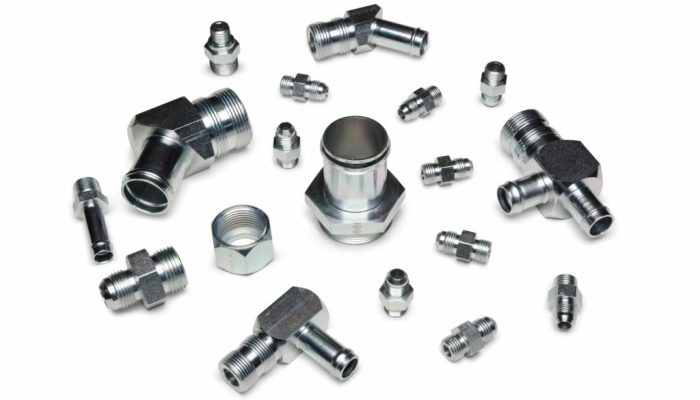
Виды коррозии никеля
Никель устойчив ко многим видам повреждений, но при правильных условиях он все же может ржаветь. Вот как он может корродировать:
Окисление поверхности
Никель медленно реагирует с кислородом воздуха. В результате этой реакции на поверхности образуется тонкий оксидный слой. В чистом, сухом воздухе этот слой устойчив и защищает металл, находящийся под ним. Со временем поверхность может потускнеть, но металл остается прочным.
Во влажном или загрязненном воздухе процесс окисления может ускориться. Это может привести к обесцвечиванию или появлению небольших точечных дефектов. Тем не менее, эта форма коррозии является мягкой и обычно носит косметический характер. Она редко влияет на прочность или функциональность детали, если только ее не оставить без внимания в суровых условиях.
Гальваническая коррозия
Гальваническая коррозия возникает, когда никель соприкасается с другим металлом в присутствии влаги. Один из металлов начинает разрушаться. Менее благородный металл (обычно цинк или алюминий) корродирует быстрее, а более благородный (например, никель) остается в безопасности.
Эта реакция часто возникает в соединениях, крепежах или смешанных узлах. Чтобы снизить риск, избегайте прямого контакта между разнородными металлами или используйте покрытия и изоляционные материалы. Сухое хранение деталей - также простой способ предотвратить возникновение гальванической коррозии.
Как защитить никель от коррозии?
Несмотря на то, что никель устойчив к коррозии, правильные методы защиты помогают ему служить дольше, особенно в суровых условиях. Вот простые способы сохранить никелевые детали в хорошем состоянии.
Защитные покрытия и обработка
Покрытия создают барьер между металлом и окружающей средой. Например, никелирование создает гладкий, плотный слой, который защищает от износа и коррозии. Другие варианты включают прозрачные покрытия, эпоксидные покрытия или даже порошковые покрытия для более сложных работ.
Пассивация еще один метод. Это химический процесс, который удаляет поверхностные загрязнения и укрепляет естественный оксидный слой металла. Такая обработка помогает никелю противостоять коррозии и сохраняет его чистый вид.
Как покрытия, так и обработка уменьшают повреждения поверхности. Они помогают сохранить функциональность и внешний вид детали с меньшими затратами времени.
Правильное техническое обслуживание
Регулярный уход может существенно изменить ситуацию. Очистка никелевых поверхностей помогает предотвратить коррозию, удаляя вредные отложения. Используйте мягкие чистящие средства - ни в коем случае не агрессивные кислоты или сильные абразивы. После очистки полностью высушите поверхность.
Не храните никелевые детали во влажных или закрытых помещениях. Храните их в сухом месте и отдельно от разнородных металлов. При необходимости длительного хранения используйте для защиты поверхности мягкую пленку или антикоррозийную упаковку. Регулярные проверки и базовый уход помогут никелевым деталям прослужить дольше и работать лучше.
Заключение
Никель не ржавеет, потому что в нем нет железа. Вместо этого он образует устойчивый оксидный слой, который защищает его от большинства видов коррозии. Хотя никель и не является полностью неуязвимым, он хорошо держится в сухой и мягкой среде. В жестких или химически агрессивных условиях он все же может со временем подвергнуться коррозии.
Нужны коррозионностойкие детали на заказ или поддержка в нанесении покрытия? Свяжитесь с нами сейчас-Загрузите свои чертежи и получите быстрое предложение от нашей команды экспертов.
Часто задаваемые вопросы
Потускнеет ли никель от воды?
Никель не потускнеет в чистой воде. В большинстве случаев контакт с водой сам по себе не вызывает видимых повреждений. Но со временем, если вода содержит соли или химические вещества, она может потускнеть или привести к легкой коррозии. Сушка деталей после контакта с водой помогает предотвратить это.
Что вызывает коррозию никеля?
Никель корродирует под воздействием агрессивной среды. Обычно это происходит под воздействием кислотных растворов, соленой воды, высокой влажности и промышленных загрязнителей. Они разрушают защитный оксидный слой и обнажают находящийся под ним металл.
Может ли никель ржаветь в соленой воде?
Никель не ржавеет, потому что в нем нет железа. Но соленая вода все же может вызвать его коррозию. Хлорид-ионы в соленой воде разрушают оксидную пленку, что приводит к точечной коррозии или разрушению поверхности. Никелевые сплавы с повышенной коррозионной стойкостью лучше использовать в морских условиях.
Каков срок службы деталей с никелевым покрытием?
Срок службы зависит от толщины, окружающей среды и условий использования. В сухих помещениях никелевое покрытие может прослужить много лет. Во влажных или коррозийных помещениях срок службы может сократиться, если не использовать дополнительные средства защиты. Регулярный уход помогает продлить срок службы.
Почему никель используется в нержавеющей стали?
Никель повышает прочность и устойчивость к коррозии. Он помогает нержавеющей стали оставаться гладкой, прочной и не ржаветь. Он также облегчает формовку стали и делает ее более устойчивой в суровых условиях, особенно при воздействии тепла или химических веществ.
Привет, я Кевин Ли

Последние 10 лет я занимался различными формами изготовления листового металла и делился здесь интересными идеями из своего опыта работы в различных мастерских.
Связаться

Кевин Ли
У меня более десяти лет профессионального опыта в производстве листового металла, специализирующегося на лазерной резке, гибке, сварке и методах обработки поверхности. Как технический директор Shengen, я стремлюсь решать сложные производственные задачи и внедрять инновации и качество в каждом проекте.


